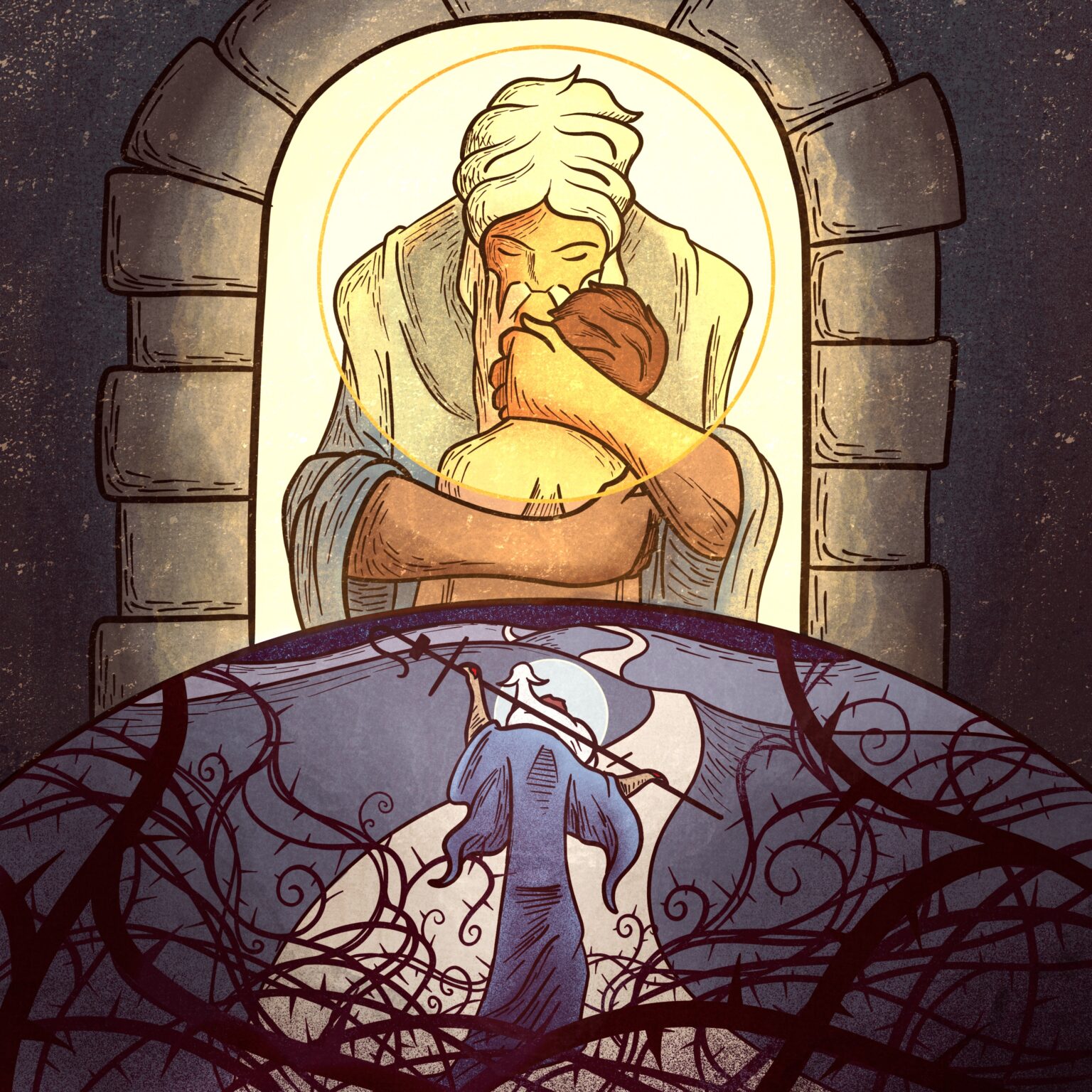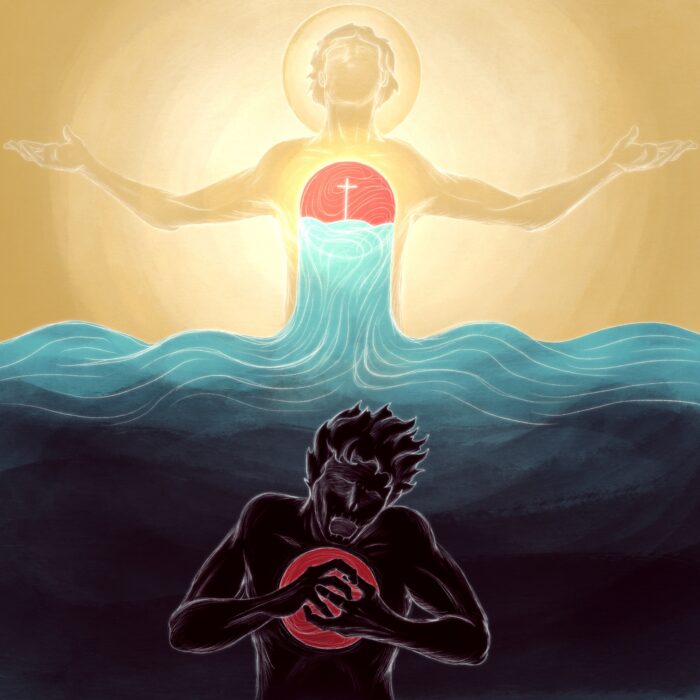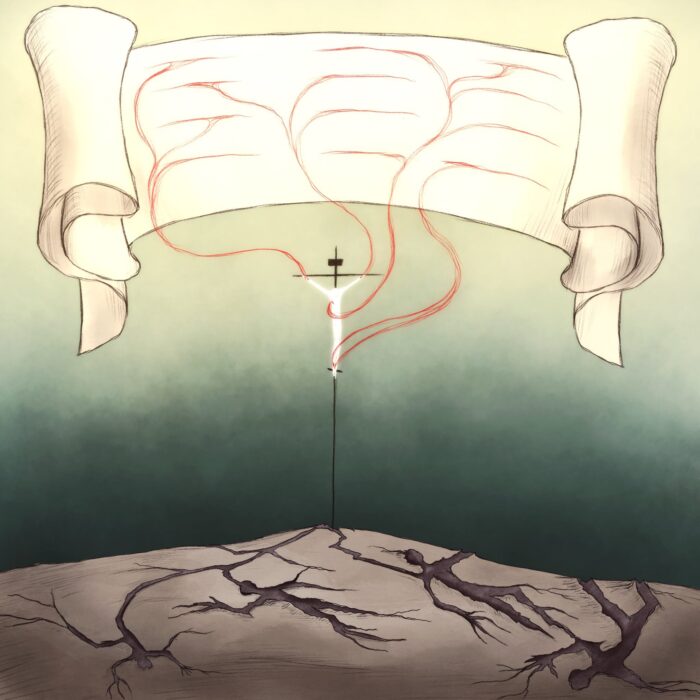Luke 15:24, ‘For this my son was dead, and is alive again; he was lost, and is found.’
This statement unites a number of concepts from ch. 15 and links them in mutually illuminating relationships. Already in the first two parables, we’ve learned that lost=unrepentant sin, and found=repentance. But now, at the climax of the third parable, a third parallelism is introduced, namely, dead and alive again. With this last interpretive element in place, we arrive at a threefold parallelism: unrepentant sin = lost = dead; repentance from sin = found = alive again.
This parallelism tells us something of what it actually means for the shepherd to find the lost sheep (Lk 15:3-6). To find that which is lost, the Shepherd must descend into that same lostness, must go to the place where the sheep is (that is a beautiful necessity built into the structure of reality…to find a thing, one needs to arrive at wherever that thing is, in other words, the only way a thing is found is if the Finder enters into the lostness of the thing and carries it out again). And if this lostness is ultimately a form of death, then for the Shepherd to descend into the sheep’s lostness is, in fact, for the Shepherd to enter death….for the Shepherd to ‘lay down His life’ (John 10:11).
We all like sheep have gone astray, and the Lord has laid on Him—the Shepherd and overseer of our souls—the iniquity of us all. The Sheep have wandered away from the fold and fallen down into the depths of Sheol where they lie in the cold graves of their sin, bound fast in the thorns of their curse. And yet the Great Shepherd of the Flock finds them even in this pit, descends even to these depths, enters their graves, entwines the thorny bands of their curse around His own flesh, raises them up upon His own shoulders and—rejoicing—carries them out of the depths and into the far green country of their own pastureland.
And so, when the Prodigal repents—when you or I repent—in that moment, the Shepherd finds the Prodigal from the cross in the death which is the lostness of his unrepentance, and raises that same Prodigal up into the life which is the found-ness of repentance through His resurrection from the dead.




